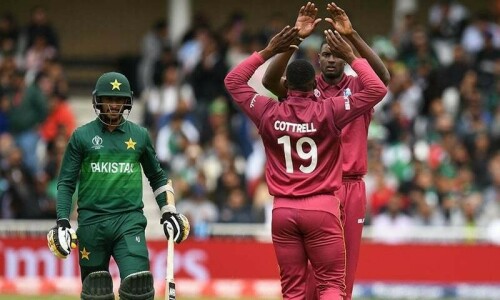It is the moment that any host dreads. In the beach resort of Durban this week, South Africa will be straining to keep up appearances for bigger, wealthier patrons—China, Brazil, Russia and India—in the feverish hope that it’s worthy of a stop on their social circuit.
The “big five” of the developing world, flag-bearers of a new world order known as the Brics, will be meeting on African soil for the first time, but doubts linger over whether the host is quite deserving of its place at the top table.
South Africa is the newest and smallest member of what used to be the Bric. Its population is 50 million compared to China’s more than 1 billion, and its GDP ranked only 28th in the world. By contrast China is 2nd, Brazil 6th, Russia 9th and India 10th. South Africa accounts for just 2.5% of the Brics GDP, according to Standard Bank research.
Even within Africa, South Africa’s growth—wracked by high unemployment and industrial unrest—is sluggish compared to many of its neighbours, and its crown as the continent’s biggest economy is under threat from Nigeria.
A year ago Jim O’Neill, the global chairman of Goldman Sachs Asset Management who coined the term “Bric”, told South Africa’s Mail & Guardian newspaper: “It’s just wrong. South Africa doesn’t belong in Brics. South Africa has too small an economy. There are not many similarities with the other four countries in terms of the numbers. In fact, South Africa’s inclusion has somewhat weakened the group’s power.”
Duncan Clarke, a Johannesburg-based economist and chief executive of Global Pacific & Partners, said: “South Africa is a declining economic power in Africa. In essence it’s a briquette. South Africa in GDP and demographic terms doesn’t stack up but there isn’t a single criterion for Brics membership.”
South Africa is not alone in its troubles, with other Brics members suffering slowing growth, prompting some analysts to suggest they are no longer the stars they were a decade ago. But the Brics are increasingly venturing into politics, a potential challenge to western dominance.
The summit agenda is expected to include the Syrian civil war and the creation of a development bank to compete with the World Bank, with $50bn in seed money.
Clarke, however, finds the entire concept of this new power bloc artificial and questionable. “Even if there’s a nudge forward on the Brics bank, it’s not a world game changer. You’ve got five really disparate economies seeking to waltz on stage as if the orchestra was in harmony. But underlying all that are very diverse and divergent interests.”
What all the Brics countries share, however, is awareness of the potential in the rest of Africa. Bric-Africa trade is predicted to top $500bn by 2015, with China-Africa trade making up roughly 60 per cent of that total. China’s pursuit of Africa’s coal, gas, oil and other natural resources has been a central driver of African economic growth over the past decade.
Brics members have helped Africa to “escape the clutches of neo-colonial dependence on foreign aid,” Blade Nzimande, a South African government minister, told a Brics academic forum earlier this month.
Jinghao Lu, a China-Africa analyst at the consultancy Frontier Advisory, said: “South Africa deserves to be a member of Brics as long as it can fulfil the expectation of being a regional representative. South Africa has long enjoyed an endowed status of being the “voice of Africa” thanks to its size of economy. “However, the country is far from representing the complexity of African political economy.”
The summit is expected to draw protests. Patrick Bond, director of the Centre for Civil Society at KwaZulu-Natal University, said: “Our slogan is, ‘Don’t carve up Africa’. This is not Berlin in 1885. Replace De Beers with China in eastern Zimbabwe and you just get more of the same, in fact worse.”
By arrangement with the Guardian













































Dear visitor, the comments section is undergoing an overhaul and will return soon.